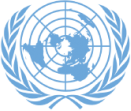Mr. Chairman
I would like to congratulate you, Mr. Chairman and other members of the bureau, on your elections. I wish you and the bureau all success in discharging your important responsibilities and assure my delegation’s full support.
I take this opportunity to commend the excellent work of the Chair and Members of the Committee’s bureau during the last session.
Nepal welcomes the Secretary-General's reports that identify gaps and challenges in reducing inequalities with a focus on policies and strategies to accelerate progress.
I align my statement with that of the Group of 77 and China and would like to make the following remarks in my national capacity.
Mr. Chairman
Prevalent inequalities of access and opportunity to education, health services, basic services, technology, economic growth show that we need to re-strategize our efforts to address disparities, equalize opportunities, and remove barriers for social mobility.
Inequality in all its forms can be curbed with the right set of policies and institutions. With this realization, the Government of Nepal is committed to reducing all forms of inequalities by reaching out to all the disadvantaged groups and leaving no one behind. Achieving SDGs and other development goals is our priority.
Guided by the letters and spirit of the Constitution, Nepal is committed to implementing policies to empower and promote social, economic, political inclusiveness of all sections of the society including women, persons with disabilities, indigenous communities and other disadvantaged groups.
Under the policy of ‘affirmative action’, quotas are allocated to various groups in government service, with a view to making management of state affairs an inclusive one.
In an effort to provide support to its vulnerable and disadvantaged population through social protection system, Nepal has introduced a wide range of social protection programmes including provisions of cash transfer programmes for the elderly, single women, people with disabilities, Dalits and endangered ethnicities; scholarship schemes for poor, girls and those from marginalized groups, among others.
Policies and programmes have been formulated and implemented to ensure rights-based and non-discriminatory approach to all citizens so that no one is left behind.
The Government launched the 'Social Security Scheme', a contributory scheme covering the formal sector. It includes medical, health and maternity benefit: accident and disability benefit; benefits for dependent family members and old-age benefit. Schemes targeted to specific groups such as ‘work or allowance’ programme have recently been introduced.
These initiatives have been triggered by the mandatory provisions of the rights-based Constitution of the country, which also guarantees employment and social security as fundamental rights. These initiatives are just a beginning.
Mr. Chairman,
Within the available resources and limited capacity, Nepal's modest social protection scheme covers[1]senior citizens, helpless single women, ethnic and indigenous groups, the disabled and fully incapacitated persons.
These measures have contributed to reducing economic dependency and inequality, and enhancing dignity and self-confidence.
In additional, fiscal policy measures that include tax reform, programmes for youth entrepreneurship and employment, and provision of minimum wage help reduce inequality.
A progressive taxation system introduced in the current fiscal year reduces income tax for the lower and middle-income earners increasing the rates for higher earners.
Similarly, there is a positive effect of minimum wage on a worker’s productivity and social mobility. The Government reviews minimum wage in consultation with employers and labour unions, ensuring that it covers at least the basic needs of an individual.
Nepal remains committed to poverty reduction in an inclusive, holistic and sustainable way. These commitments and initiatives are expected to make a difference in near future as the country focusses now on economic prosperity building on the political transformation.
To conclude, Mr. Chairman, my delegation is of the view that national efforts alone cannot address poverty and inequality. International development partners should complement and support nationally led initiatives. In this regard, the recommendations drawn on best practices must turn into action with commensurate commitments, encouragement and resources from all sides. Nepal pledges its full commitment to working with the international community to achieve these goals.
I thank you all.
[1] cash transfer for the elderly, single women, people with disabilities, Dalits and endangered ethnicities; scholarship schemes for poor, girls and those from marginalized groups; midday meal programmes; relief to conflict-affected people; food subsidy in remote areas; and a wide range of health care supports


